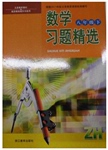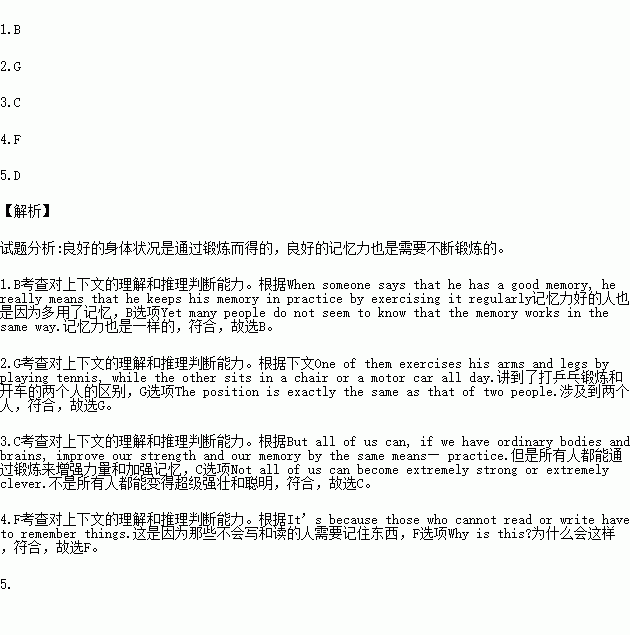题目内容
根据短文内容,从短文后的选项中选出能填入空白处的最佳选项。选项中有两项为多余选项。
If you do not use your arms or your legs for some time, they become weak; when you start using them again, they slowly become strong again. Everybody knows this, and nobody would think of questioning this fact. 1. When someone says that he has a good memory, he really means that he keeps his memory in practice by exercising it regularly, either consciously or unconsciously. When someone else says that his memory is poor, he really means that he does not give it enough opportunity to become strong. 2. One of them exercises his arms and legs by playing tennis, while the other sits in a chair or a motor car all day.
If a friend complains that his arms are weak, we know that it is his own fault. But if he tells us that he has a poor memory, many of us think that his parents are to blame, or that he is just unlucky, and few of us realize that it is just as much his own fault as if it was his arms or legs that were weak. 3. But all of us can, if we have ordinary bodies and brains, improve our strength and our memory by the same means— practice.
Have you ever noticed that people who cannot read or write usually have better memories than those who can? 4. It’s because those who cannot read or write have to remember things. They cannot write them down in a little notebook and they have to remember dates, time and prices, names, songs and stories, so their memory is being exercised the whole time 5. .
A. What do you think of it?
B. Yet many people do not seem to know that the memory works in the same way.
C. Not all of us can become extremely strong or extremely clever.
D. So if you want a good memory, practice remembering.
E. Someone else says that he is poor in health.
F. Why is this?
G. The position is exactly the same as that of two people.
 习题精选系列答案
习题精选系列答案
